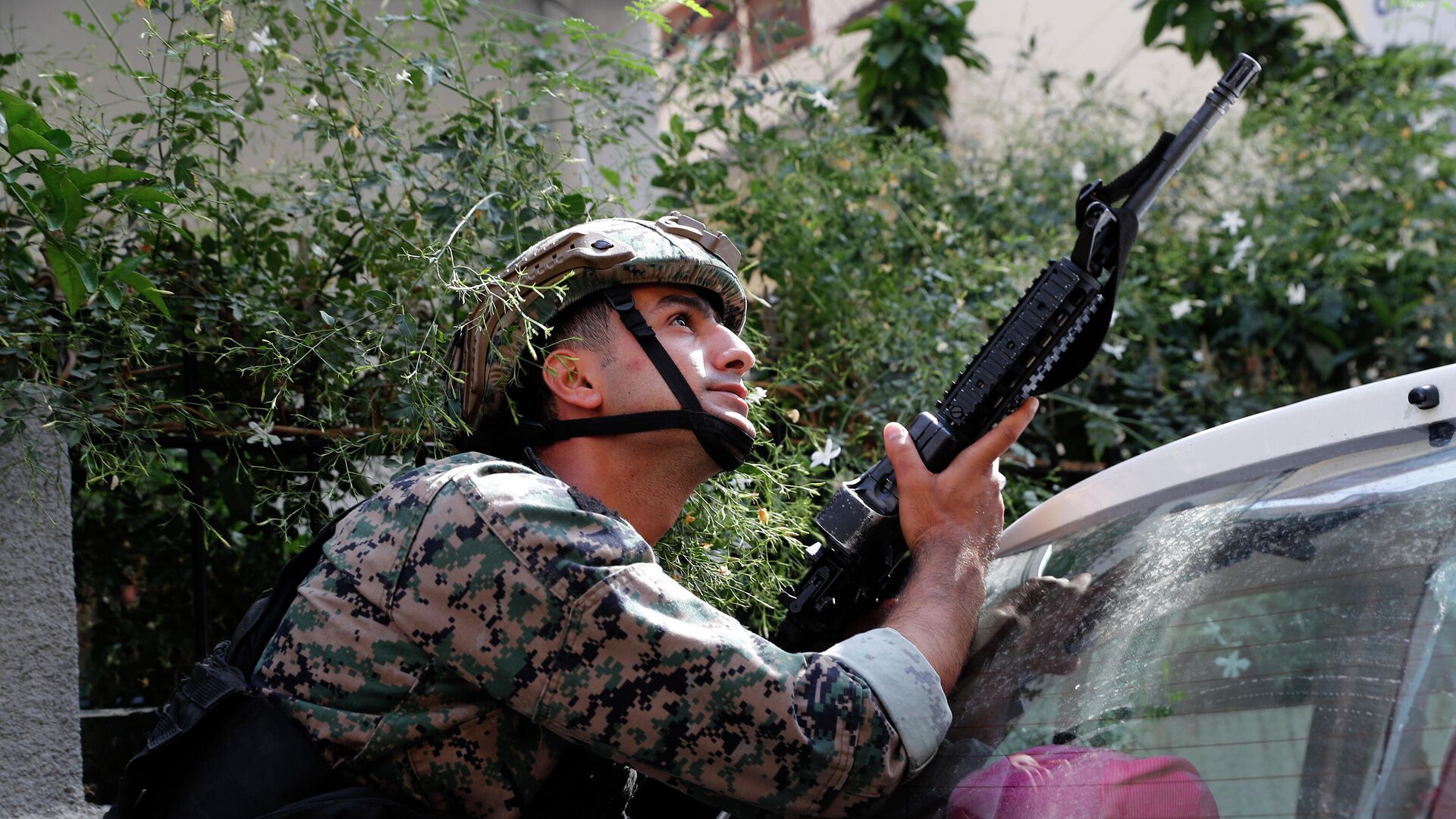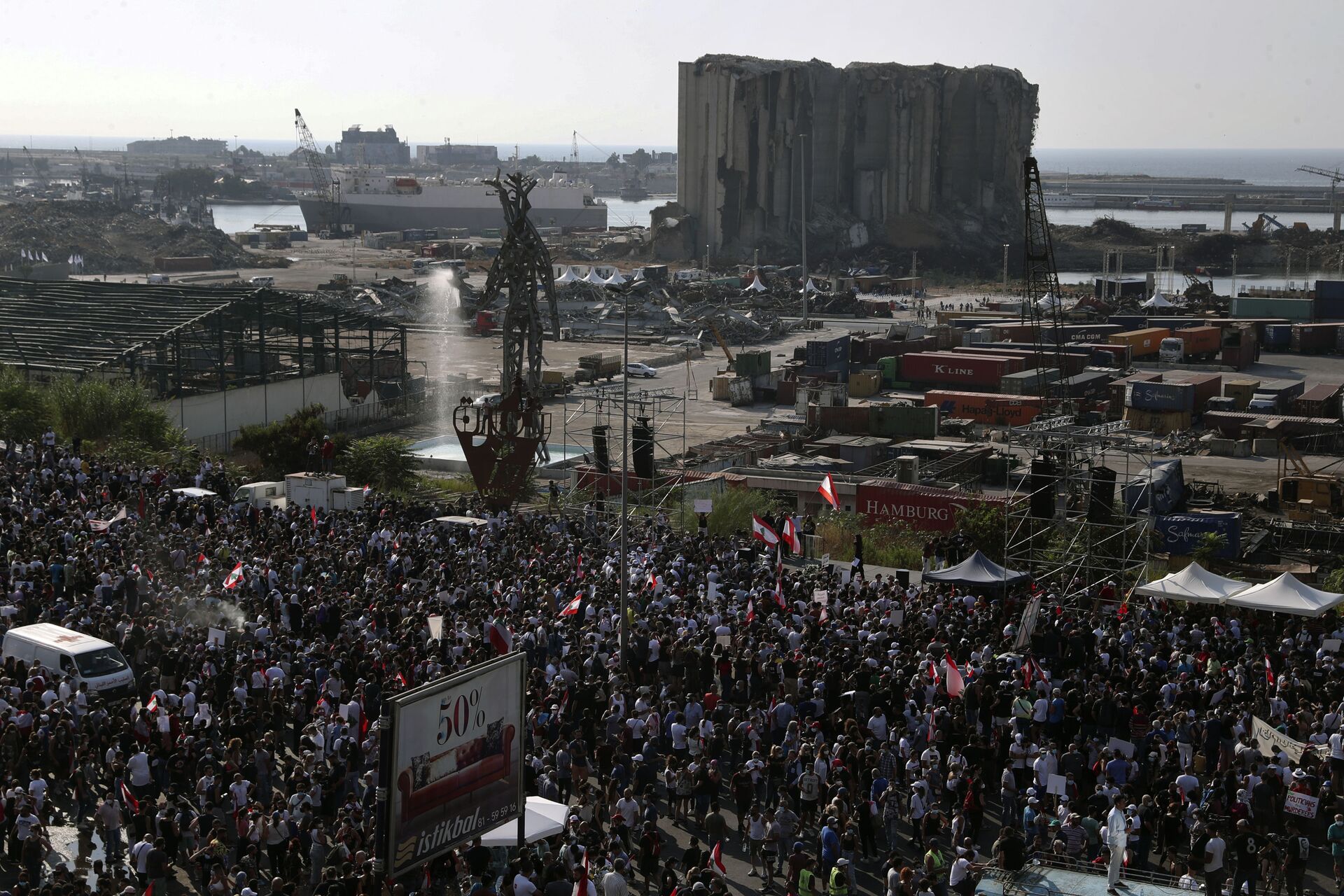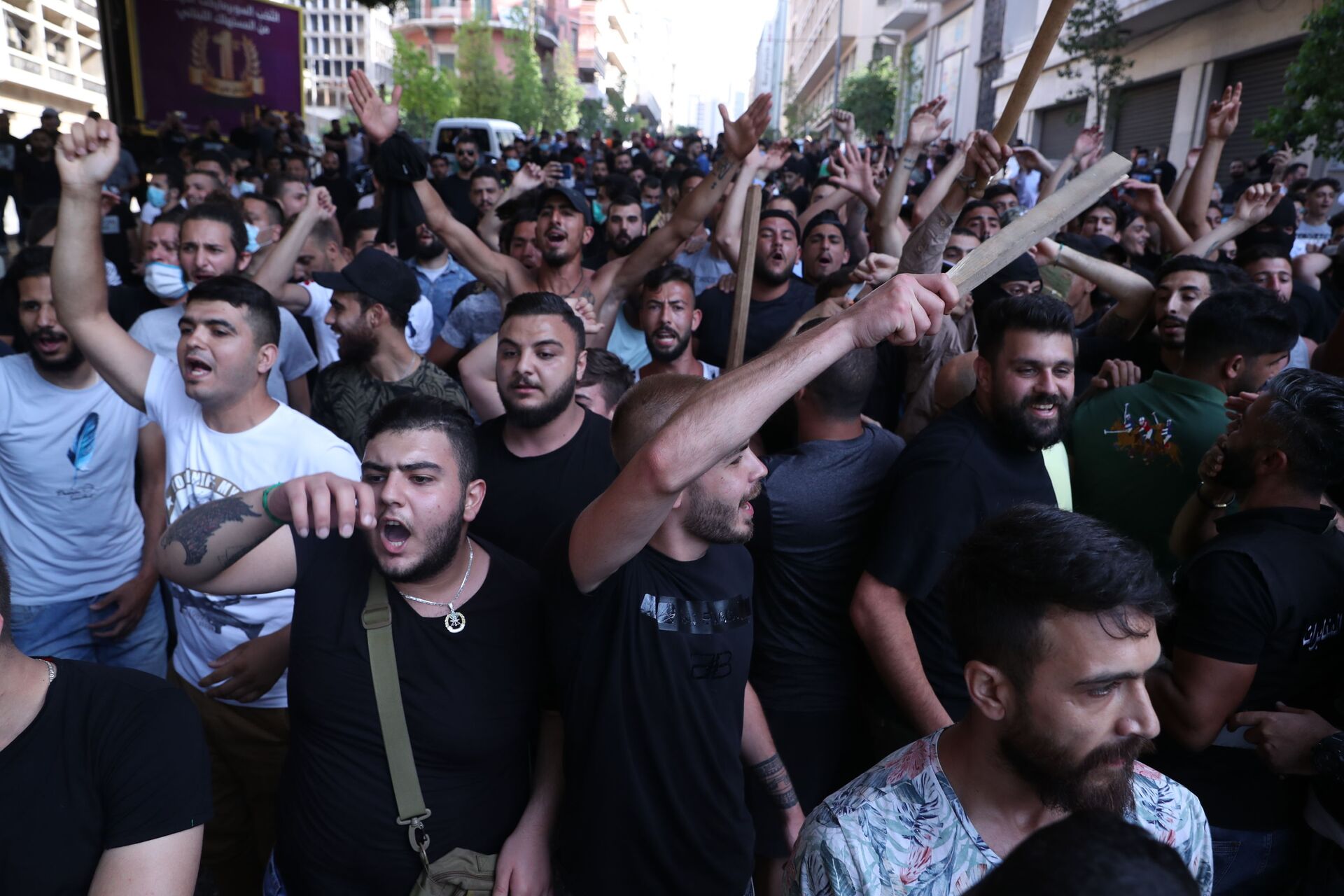As Protesters Killed in Beirut, What is Going On in Lebanon and Why is There a Fear of Civil War?
11:30 GMT 14.10.2021 (Updated: 12:48 GMT 01.03.2022)

© AP Photo / Hussein Malla
Subscribe
At least six people were killed by gunfire in Beirut on Thursday as protesters demanded the removal of the lead investigator into last year’s blast at the docks. The rally was organised by two Shia Muslim groups, Hezbollah and Amal.
Six people were shot dead and at least 12 are critically injured in hospital after heavy gunfire was reported in the Tayouneh district of Beirut on 14 October.
Lebanese television carried images of unidentified men carrying rifles and heavy weaponry.
Lebanese television carried images of unidentified men carrying rifles and heavy weaponry.
The Lebanese Army said the gunfire had targeted the protesters as they passed through a road junction close to the interface between Christian and Shia Muslim neighbourhoods.
Exchange of gunfire in Amal neighbourhood following protest in front of Qadr al adaleh in Beirut pic.twitter.com/SL2NFmhSL5
— Will Christou (@will_christou) October 14, 2021
The army called on civilians to evacuate the area and warned it would open fire at anyone firing live rounds.
Prime Minister Najib Mikati called for calm and warned against attempts by provocateurs to drag Lebanon back into its violent past. Between 1975 and 1990 Lebanon was torn apart by a sectarian civil war which pitted Maronite Christians against Shia and Sunni Muslims and their Palestinian and Druze allies.
Prime Minister Najib Mikati called for calm and warned against attempts by provocateurs to drag Lebanon back into its violent past. Between 1975 and 1990 Lebanon was torn apart by a sectarian civil war which pitted Maronite Christians against Shia and Sunni Muslims and their Palestinian and Druze allies.
Hezbollah and Amal also issued a joint statement on Thursday in which they called on "our supporters to stay calm and not to fall for malicious provocations” and warned that the attack on protesters was aimed at “plunging the country into a strife.”
The latest political crisis has come in the wake of the catastrophic blast in Beirut’s docks on 4 August 2020 which killed more than 200 people, injured 5,000 and devastated a large part of the capital.
It has since emerged 2,750 tonnes of ammonium nitrate - a highly volatile chemical used as fertiliser - had been stored in Warehouse 12 at Beirut docks after being taken off a ship, the MV Rhosus, in 2013.

People gather outside the port to mark the first anniversary of the massive blast at Beirut's port, in Beirut, Lebanon, Wednesday, Aug. 4, 2021.
© AP Photo / Bilal Hussein
The vessel developed engine trouble while travelling from Georgia to Mozambique.
The ammonium nitrate should have been disposed of, or resold, but was instead kept at the warehouse in poor conditions which led to it exploding with devastating consequences.
The investigation into the explosion is seeking to get to the bottom of which politicians and port officials were responsible for the fatal decisions.
But Hezbollah and Amal claim the judge leading the investigation into the blast, Tarek Bitar, is targeting them in a blame game.

Shiite Hezbollah and Amal Movement groups in downtown Beirut
© AP Photo / Bilal Hussein
He has been heavily criticised by Hezbollah and Amal after he tried to subpoena several Shia ministers and officials as part of his probe.
On Thursdat, Lebanon’s Court of Cassation reportedly turned down a lawsuit filed by two former ministers demanding Judge Bitar be replaced.
Earlier this month, the judiciary rejected another attempt to oust Judge Bitar, who has been praised by relatives of some blast victims as a symbol of judicial independence. The ruling would allow the judge to resume enquiries into the devastating Beirut explosion.
Remember this face, remember this name: Judge Tarek Bitar, investigating Beirut port explosion is being directly threatened by Hezbollah. #Lebanon pic.twitter.com/fvlqpWDumm
— Van Meguerditchian (@ReelPolitiks) October 12, 2021
Today's violence followed a Monday speech by Hezbollah chief Hasan Nasrallah, who called for an "honest" judge to replace Bitar.
But the following day, Judge Bitar issued an arrest warrant for Ali Hasan Khalil, a senior Amal MP, who refused to be questioned about his role in the events leading up to last year’s explosion.
Khalil, who said the path of the probe could push Lebanon "towards civil strife", then threatened a "political escalation" if Judge Bitar did not change the course of the investigation.


